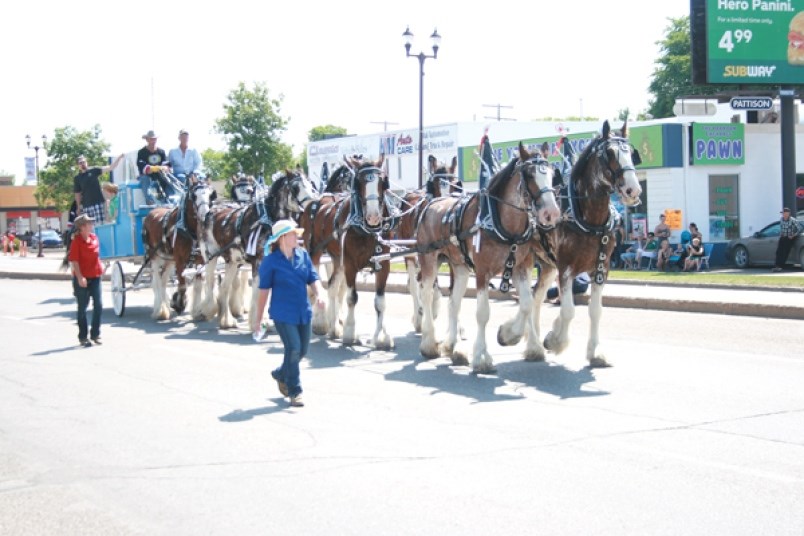It is fair time in Yorkton, and that is an annual event that always brings back a flood of memories from my youth.
In my youth, a time now more than three decades in the past, I spent large chunks of my summer at fairs. Dad showed livestock back then, and I was naturally thrust into the show ring. I won my first trophy at age five, the Inkster Cup as I recall, and if I dug around in enough boxes I might still have the little keeper trophy.
From that time until I was beyond my teen years I was showing stock. Through the years the list of animals became rather diverse when I look back, ranging from pigs and beef cattle to sheep, dairy goats, helping a couple of times with a draft horse halter class for someone needing a hand, and even one year catching some of the laying hens to show at Shand Fair. Add in a few grain sheaves a couple of years, and I covered a lot of the bases in terms of showing.
Back when I was young though summer fairs were somewhat different than they are today.
An event such as the one in Yorkton this week, and at others held across the prairies these days, are largely an entertainment package now. They are all about midways, and stage shows, and combine crunches and chuckwagon races.
People go to be entertained, and there is nothing wrong with that. Fairs are supposed to be fun.
In fact, they have always been about entertaining, whether it was a hot band like Trooper, when they were still topping the charts, at a major city fair, or farmer fastball at a one day fair like Connaught where I was a director by the age of 16.
But, fairs were also solidly about agriculture a quarter of a century ago.
Farmers brought out their stock and paraded them around a show ring hoping to get the judge’s nod for the red ribbon.
There weren’t big crowds watching, but people did wander through the barns to look at the stock. It was a connection between farmers and urban residents, many who I suspect back then were still more closely tied to our shared agrarian past.
There was a value in that connection I think was important. Certainly today farmers are encouraged to make connections with consumers in order to tell their story of producing food in a safe, sustainable way. Fairs used to be a forum that allowed that dialogue to take place as people casually walked through the barns as part of going to the summer fair.
Whether it was Nipawin Fair, Saltcoats, Abernathy, Kelliher, Kelvington, Prince Albert of dozens of others, there was a chance for producers to show off their livestock and talk farming with others. That element of the summer fair is all but gone. Barns in Yorkton, as an example, see very limited use at the summer fair now, which for me is a sad thing.
But at least my childhood memories remain.
Calvin Daniels is editor with Yorkton This Week.



